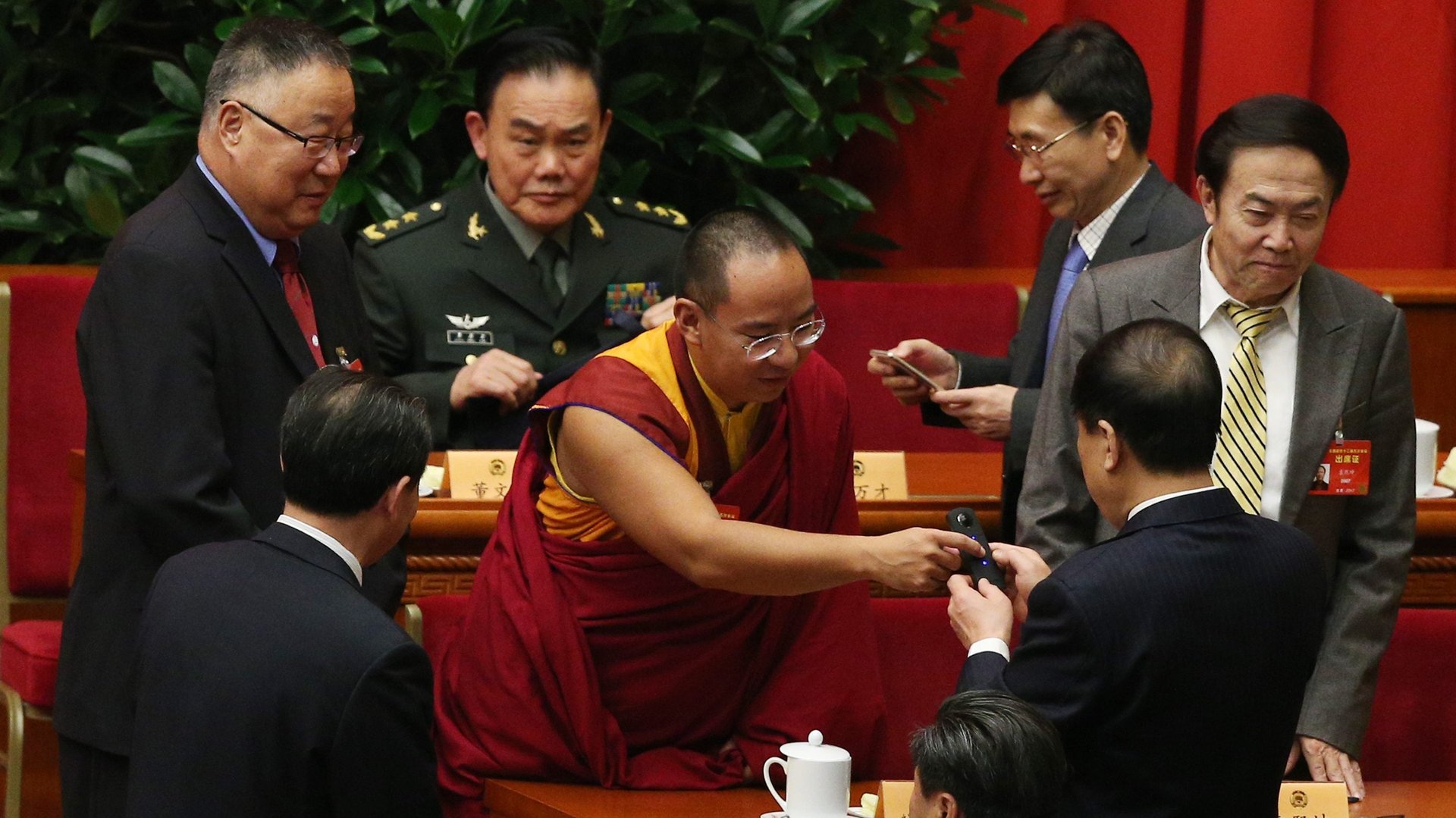The spiritual leader China appointed for Tibetan Buddhism urged monks to love the Communist Party
In a rare speech, China’s official Tibetan spiritual leader, the Panchen Lama, called on the nation to develop monks who love the Communist Party, the same officially atheist party that appointed him to represent Tibetan Buddhism.


In a rare speech, China’s official Tibetan spiritual leader, the Panchen Lama, called on the nation to develop monks who love the Communist Party, the same officially atheist party that appointed him to represent Tibetan Buddhism.
Speaking on March 11 at Beijing’s biggest annual political gathering, 27-year-old Gyaincain Norbu—considered a phony by many Tibetans—also criticized phony monks and fake living buddhas who defraud followers, adding that the religion has suffered from commercialization.
Addressing an annual plenary session of the Chinese People’s Political Consultative Conference (CPPCC), he then called upon the government (link in Chinese) to spend more resources on developing young monks “who love the party and love the country, are spiritually clean, and care for all living beings.”
As a member of the CPPCC—China’s top political advisory body—the Beijing-appointed Panchen Lama has attended the conference in past years. But this was the first time he gave a speech at the gathering.
The talk came amid growing concerns in Beijing over calls for Tibetan separatism. On March 10, protesters demonstrated in cities worldwide to mark the anniversary of a Tibetan uprising against the Chinese regime in 1959.
Ahead of the rallies Tibet’s governor, Che Dalha, vowed to “resolutely strike” against separatist activities led by the “Dalai Lama clique.” Meanwhile China’s foreign ministry denounced the Dalai Lama as a “deceptive actor,” after the religious leader in exile said China’s leaders are not “using the human brain properly” during an interview that aired March 5 on Last Week Tonight with John Oliver.
The 14th and current Dalai Lama, 81-year-old Tenzin Gyatso, fled to India and established the Tibetan government in exile there after Chinese troops crushed a 1959 uprising. For decades, he advocated for Tibet’s full independence, but he’s since moderated his stance to seek autonomy under the Chinese regime.
The Panchen Lama ranks after the Dalai Lama as the second-highest figure in Tibetan Buddhism and bears part of the responsibility for finding the next incarnation of the Dalai Lama (and vice versa). In 1995, the Dalai Lama identified six-year-old Gendun Choekyi Nyima as the 11th Panchen Lama. But Beijing later selected another boy, Gyaincain Norbu, while the boy selected by the Dalai Lama has since disappeared. (The Chinese government said in 2015 that he’s “living a normal life” and does not want to be disturbed.)
Against this backdrop, the current Dalai Lama has hinted that he might not reincarnate at all, though he has never given a definite answer.
China’s Communist Party has for decades suppressed unauthorized religious activities in the country for fear of any disobedience against it. In the meantime it’s tried to reinforce solidarity among official religious groups.
The Panchen Lama is also a vice chairman of China’s official Buddhist association, overseen by the State Administration for Religious Affairs.
“Buddhism can play an active role in the country’s development,” he said in his speech. “It can reinforce followers’ recognition of the party’s leadership, socialism with Chinese characteristics, and the Chinese nation.”